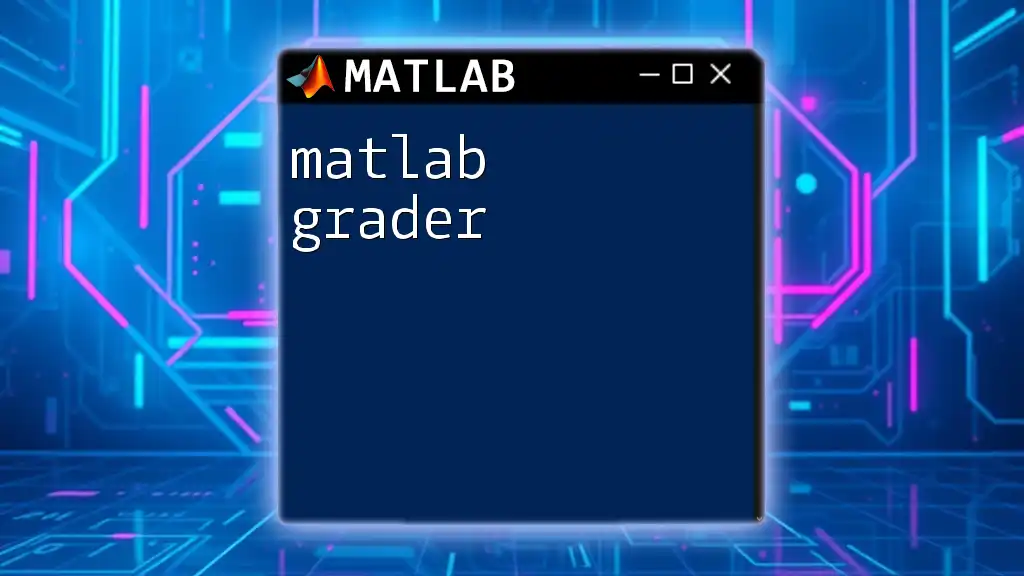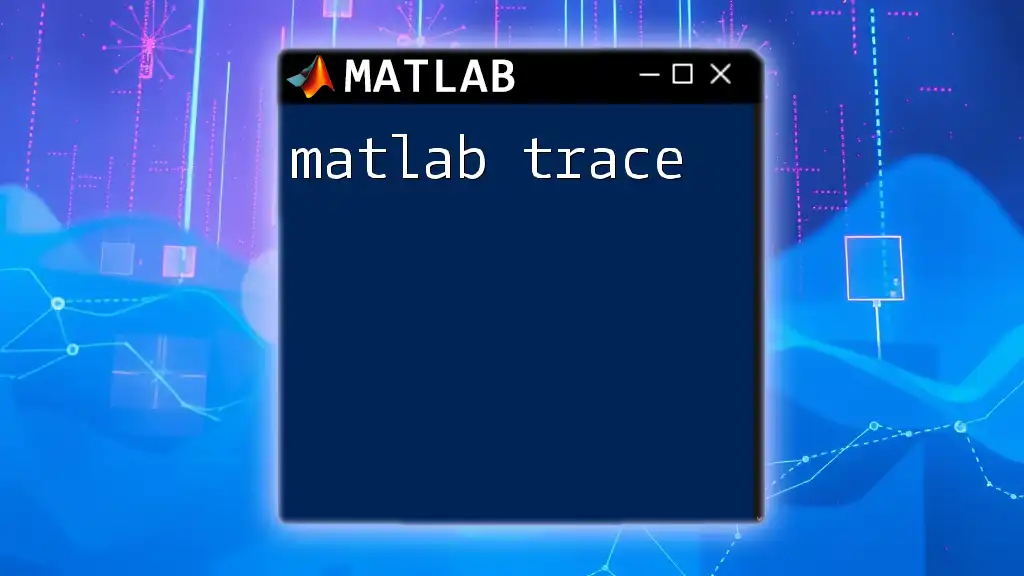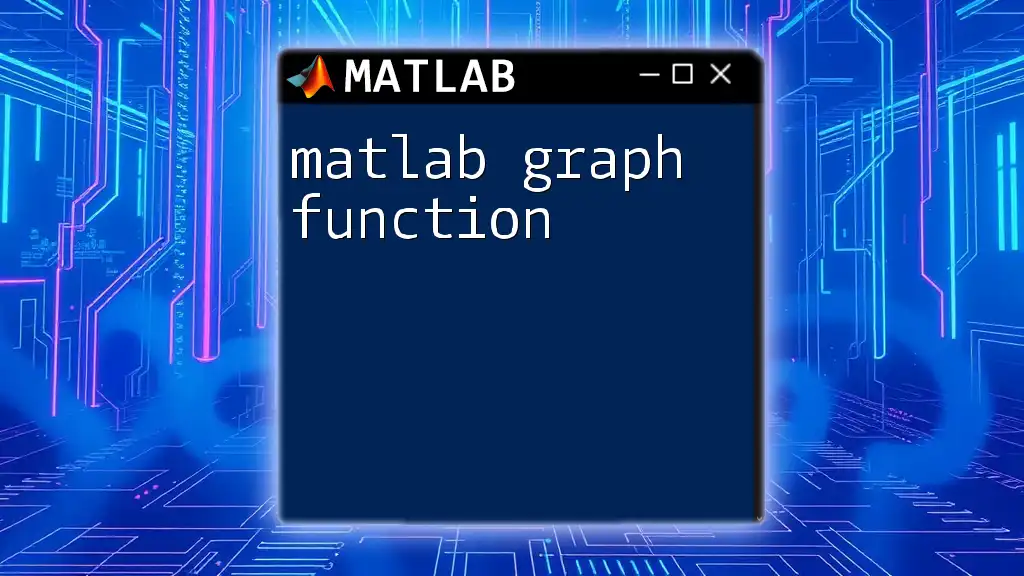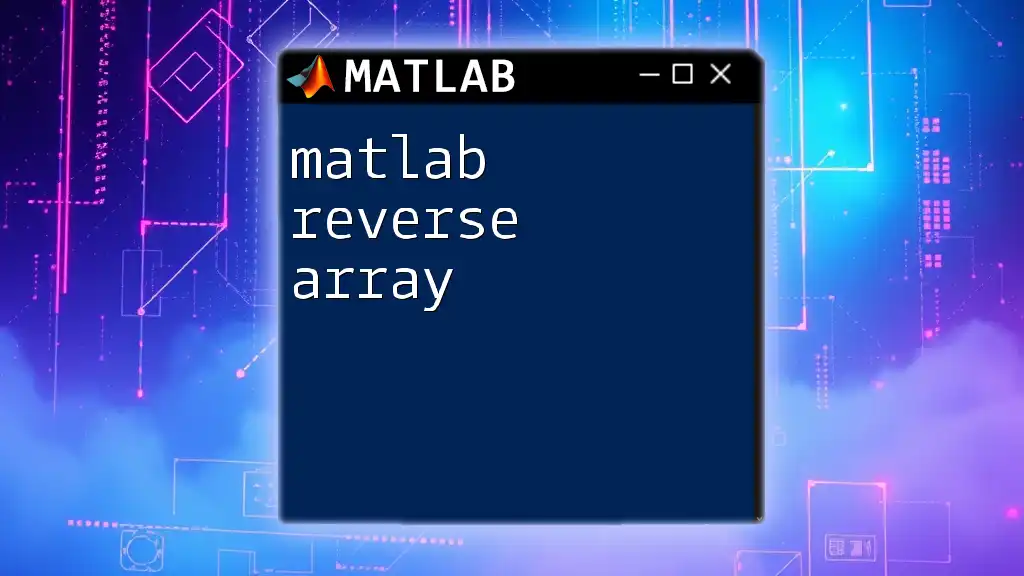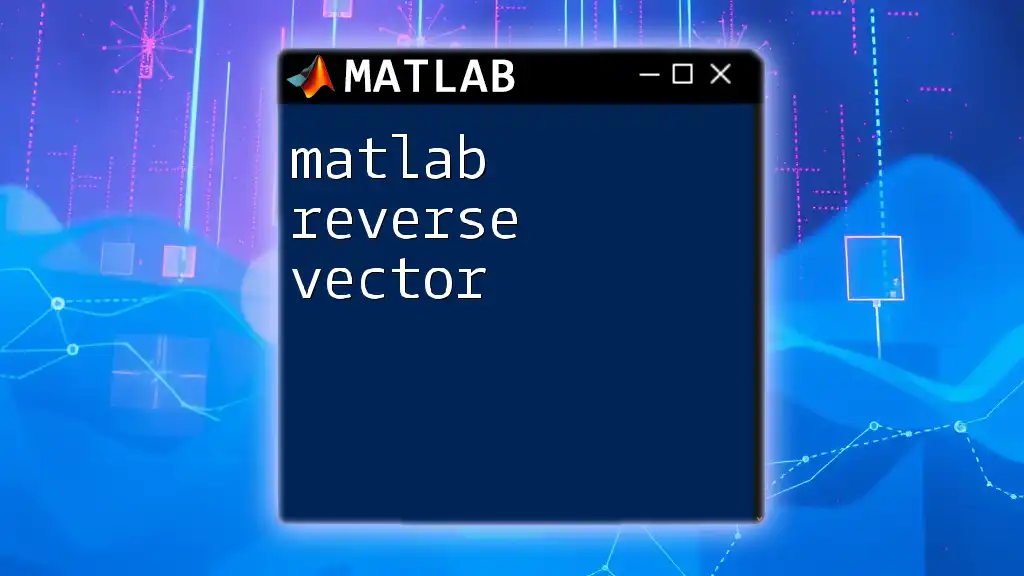MATLAB Grader is an interactive tool that allows educators to create and manage online assessments in MATLAB, facilitating automated grading of students' code submissions.
Here’s a simple example of how you can define a function in MATLAB that returns the sum of two numbers for grading:
function result = addNumbers(a, b)
result = a + b;
end
What is MATLAB Grader?
MATLAB Grader is a powerful tool designed to facilitate the assessment of student learning through automated grading of MATLAB code. It provides educators with an efficient platform to create, manage, and administer a wide variety of assignments and quizzes tailored to the needs of their students. The primary features include:
- Interactive learning environment that allows students to gain hands-on experience.
- Automated grading capabilities that eliminate the tedious manual grading process.
- Customizable assessments that align with individual course objectives.
The importance of MATLAB Grader lies in its ability to enhance the teaching and learning experience, making it an invaluable resource for both instructors and learners.
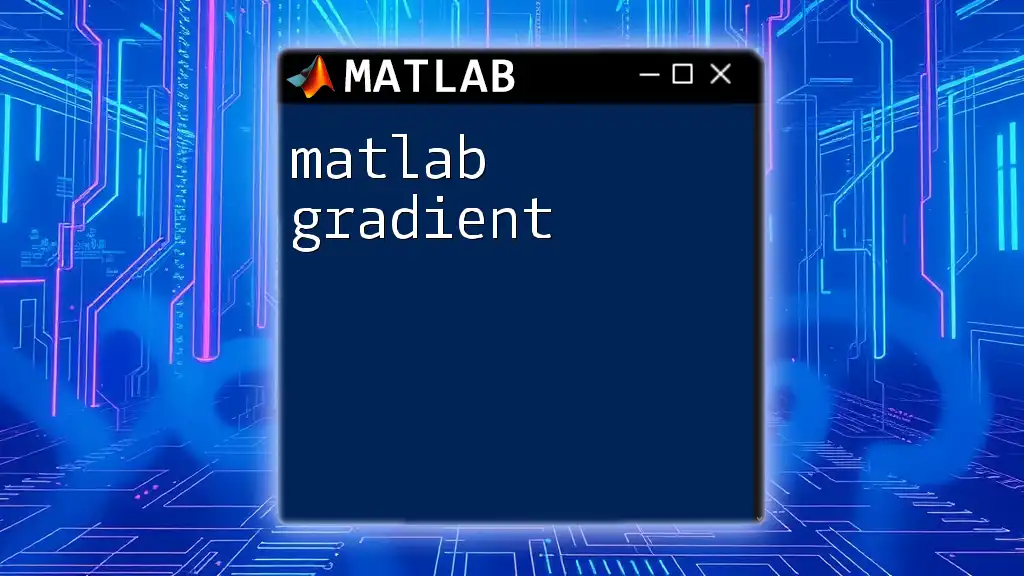
How to Access MATLAB Grader
Before diving into the tool, it's essential to know how to access MATLAB Grader effectively.
To use MATLAB Grader, you'll need:
- An account on MathWorks (if you don't have one, you can easily create it).
- Access to MATLAB either through a license or an educational institution.
To access MATLAB Grader, follow these steps:
- Sign up or log in to your MathWorks account.
- Navigate to the MATLAB Grader section on the MathWorks website.
- Familiarize yourself with the user-friendly interface that will be your canvas for developing assessments.
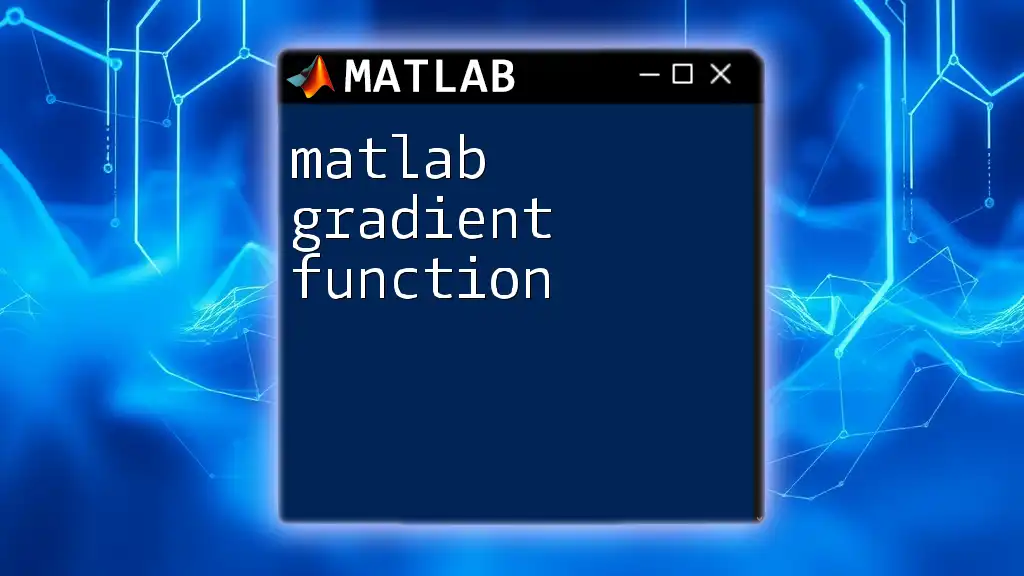
Key Features of MATLAB Grader
Interactive Learning Environment
The interactive interface of MATLAB Grader significantly enhances student engagement by providing immediate feedback. Students can experiment with MATLAB commands and concepts in real-time, refining their skills as they work through problems. This interactive approach fosters a deeper understanding of the material compared to traditional learning methods.
Automated Grading
One of the standout features of MATLAB Grader is its capability for automated grading. This function allows educators to set up problems that automatically evaluate student submissions against pre-defined test cases.
Benefits for educators include:
- Time savings: No more manual checks; grading can happen instantly.
- Objectivity: Limits biases that can occur in manual grading.
For example, once a problem is set up with test cases, when students submit their code, MATLAB Grader runs it against the cases and provides a grade based on performance.
Customizable Assessments
Assessments in MATLAB Grader are highly customizable. Educators can create unique problem sets that align with their learning objectives or course framework.
To create a simple problem, an educator might write:
function y = multiplyByTwo(x)
y = 2 * x;
end
This function can then be set as a part of a problem statement in MATLAB Grader, allowing students to practice basic function writing and debugging.
Step-by-Step Feedback
Another remarkable feature of MATLAB Grader is step-by-step feedback. Through automatic checks, students receive feedback not just on whether their submission was correct or incorrect, but detailed insights into their code.
This mechanism is especially beneficial because it encourages students to understand their mistakes and refine their solutions, unlike traditional grading, which might simply hand back an assignment with a grade but no context for improvement.

Creating Your First Problem in MATLAB Grader
Creating your first problem is an enriching experience. Here's a simple guide to get you started:
Step 1: Define the Problem
A well-defined problem statement is crucial. It should clearly articulate what the students are required to accomplish. For example:
"Write a function `calculateArea` that takes the radius of a circle as input and returns the area."
Step 2: Write Test Cases
Test cases are vital for ensuring that the student solutions work as intended. A good practice is to write multiple test cases, particularly edge cases that could challenge a student's logic or coding ability.
Here’s a basic example of how a test might look:
assert(isequal(calculateArea(1), pi));
assert(isequal(calculateArea(3), 9 * pi));
Step 3: Provide Sample Solutions
Providing a sample solution helps set expectations and provides a benchmark for students. The sample solution may look like this:
function area = calculateArea(radius)
area = pi * radius^2;
end
This sample is straightforward and reflects best practices in coding, which sets a positive example for students.

Best Practices for Using MATLAB Grader
Designing Effective Problems
Not all problems are created equal. Effective MATLAB problems should:
- Be clear and concise in their requirements.
- Encourage critical thinking rather than rote memorization.
- Include a variety of difficulty levels to cater to different skill sets.
Utilizing Feedback for Improvement
Instructors can encourage students to leverage the feedback provided by MATLAB Grader to refine their understanding. By analyzing performance data, educators can identify common pitfalls and tailor future instruction accordingly.
Engaging with the Community
Being an active participant in MATLAB user communities can enhance the learning experience. Networking with others allows educators to share insights, gain support, and discover new strategies for effective assessment design.

Case Studies
Success Stories from Educators
Numerous educational institutions have successfully integrated MATLAB Grader into their curriculum. For example, a university saw a marked improvement in overall student performance and engagement in their introductory programming course after adopting MATLAB Grader.
Student Perspectives
Students report that using MATLAB Grader has positively impacted their learning experience. They highlight the advantages of instant feedback and appreciate the clarity in expectations that the platform provides.

Conclusion
MATLAB Grader serves as an essential tool for enhancing both the teaching and learning of MATLAB programming. It significantly streamlines the grading process while fostering a collaborative and engaging learning environment.
Educators and learners alike should embrace this innovative approach to assessments, ensuring that they are equipped with the skills necessary to thrive in today’s increasingly technical world.

Additional Resources
For further exploration of MATLAB Grader, educators can refer to the official documentation on the MathWorks website. Additional reading materials, such as books and tutorials on MATLAB, can provide deeper insights into its capabilities. Engaging with the community through forums and groups can also enhance the user experience, offering a platform for sharing strategies and advice.

